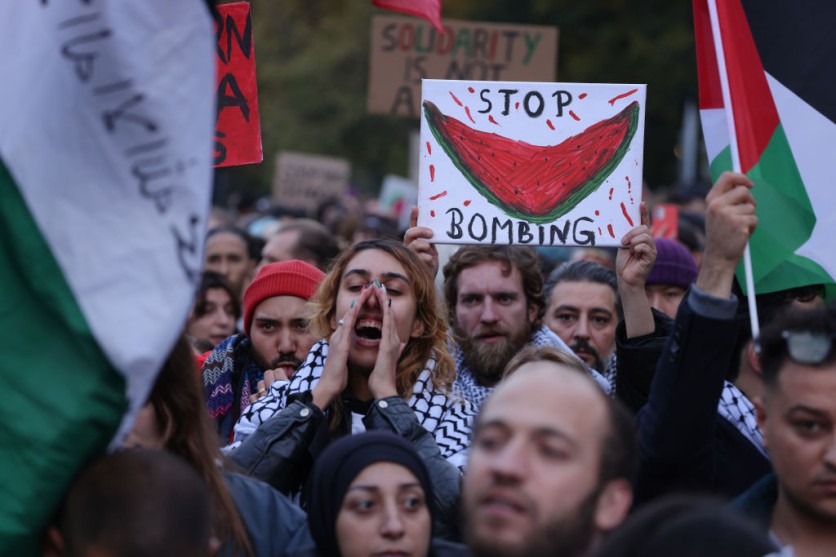As the conflict between Israel and Hamas continues, social media platforms are increasing content moderation, impacting pro-Palestinian content with Palestinian flag emojis. Users report concealed comments and added terms like "terrorist."

Resorting to Creative Symbols
Social media platforms are intensifying their content moderation efforts amid the Israel-Hamas war. Business Insider reported that users allege that these measures are also impacting innocent pro-Palestinian content, including comments and accounts featuring the Palestinian flag.
For instance, Instagram users claim that comments with the Palestinian flag emoji are being hidden, and the word "terrorist" is automatically added to translations of certain profiles containing the emoji, according to a report from Palestinian digital rights nonprofit 7amleh.
While Meta, Instagram's parent company, hasn't directly addressed Insider's request, a Meta spokesperson stated that there are no specific policies regarding the Palestinian flag emoji. However, comments with the emoji are hidden in certain "offensive" contexts violating platform rules.
Consequently, users on major platforms, from Instagram to TikTok, are substituting watermelons for the Palestinian flag or as a representation for terms like "Palestine" or "Gaza" to express support for Palestinians and counter what they perceive as unjust moderation.
Watermelon for Palestinian Flag
TechCrunch reported that creators are leveraging watermelon imagery to rally aid for the humanitarian crisis in Gaza, where nearly 11,000 people have lost their lives in Israel's offensive, initiated after Hamas attacks on Oct. 7 resulted in approximately 1,200 Israeli casualties.
Recently, augmented reality artist Jourdan Louise Johnson introduced "Filter for Good I," a TikTok filter featuring a watermelon image that users can trace across the screen with their fingers. Johnson developed the filter through TikTok's Effect Creator Rewards program, enabling creators to monetize their effects, with proceeds pledged to charities providing aid in Gaza.
Watermelons have evolved into a symbol of Palestinian resilience since the Six-Day War in 1967 when Israel gained control of the West Bank and Gaza, implementing a ban on publicly displaying the Palestinian flag in those regions.
The widespread cultivation of watermelons in Gaza and the West Bank, coupled with the fruit's colors mirroring those of the Palestinian flag-red, green, and black-contributed to its adoption as a subtle expression of Palestinian resistance.
Historical narratives suggest that, in response to the ban on the Palestinian flag, Palestinians ingeniously used sliced watermelons to convey their solidarity. During times of heightened tension, individuals would place watermelon slices on windowsills or carry them through the streets, as reported by the Times of Malta.
Palestinian artists have embraced the watermelon as a powerful motif in their creations. The National reported that Sliman Mansour, a Palestinian artist in his late seventies, derived inspiration for painting watermelons from an Israeli officer who warned him against using the Palestinian flag in his artwork.

ⓒ 2025 TECHTIMES.com All rights reserved. Do not reproduce without permission.




